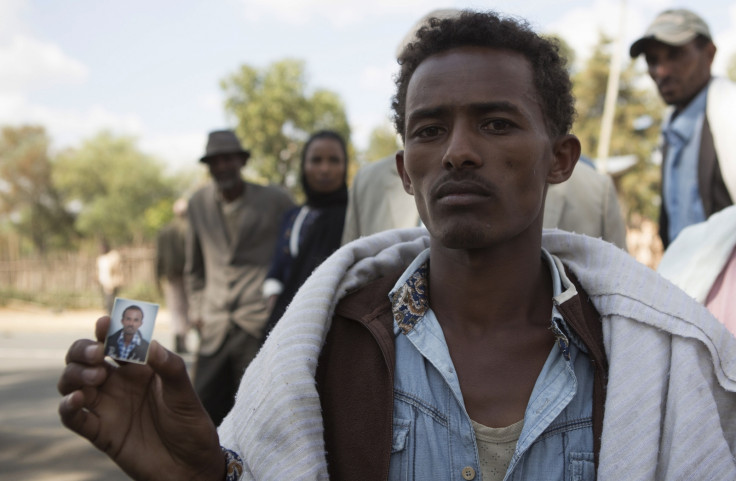Oromo protests: What you need to know about state of emergency in Ethiopia
State of emergency comes as activists claim violence has led to hundreds of deaths in past year.
Ethiopia has declared a state of emergency as anti-government protests rock the state of Oromia. The unrest is posing a threat to Ethiopians' safety, the government warned.
"A state of emergency has been declared because the situation posed a threat against the people of the country," Ethiopian Prime Minister Hailemariam Desalegn said on state-run television on Sunday 9 October.
It is believed the state of emergency, declared for the first time in 25 years, will last for six months.
The government said security forces will "deal with anti-peace elements that have allied with foreign forces and are jeopardising the peace and security of the country".
Reasons behind protests
Demonstrators first took to the streets of Oromia in November 2015 to voice their dissent against a government draft plan that aimed to expand the boundaries of the capital Addis Ababa.
They argued the so-called "Addis Ababa master plan" would lead to the forced evictions of Oromo farmers and would undermine the survival of the Oromo culture and language.
The Ethiopian government scrapped the master plan, following increasing agitation. Protests are continuing, with people calling for self-rule, the liberation of political prisoners and the end of what they perceive to be a military regime in the region.
This includes an end to an alleged crackdown by security forces on "peaceful and unarmed" demonstrators, mainly students and farmers.
Death toll
In October, activists and opposition members claimed security forces have killed some 700 people.
Anti-government protests in Ethiopia
Who are Oromo people, Ethiopia's largest ethnic group?
Who are the Amhara people involved in Ethiopia's anti-government protests?
In its latest report released on 8 October, Human Rights Watch (HRW) said security forces have killed "more than 500 people during protests over the course of the last year." The organisation added journalists and activists face harassment, surveillance, and criminal charges, and called for an independent and impartial investigation into the violence.
The government has always rejected these figures claiming that people who perished during protests were killed by "anti-peace" forces.
Earlier in October, at least 55 people died in a stampede at a religious festival in Oromia. Activists claimed the stampede took place after security forces opened fire on protesters and claimed the death toll was much higher. However, the government blamed the violence on "anti-peace forces".
On 5 October, a US citizen died after suffering injuries as "unknown individuals" threw rocks at her vehicle. Sharon Gray was a postdoctoral researcher at the University of California's plant biology department. She became the first foreign victim to have died since violence erupted in Oromia.

Protesters target foreign-owned companies
In recent weeks, protesters have been attacking companies and firms, including foreign ones, in Oromia. According to Oromo activists and PhD candidate at London's Soas University, Etana Habte, there are two reasons behind these attacks.
"The government uses those companies to expand and strengthen its economic foundations, the success of which [leads to the] further enrichment of the already multibillionaire [Tigrayan People's Liberation Front (TPLF)] elites," he told IBTimes UK
"Destroying those companies, including foreign-owned ones, has been believed to damage the regime's economic foundations. After all, the land over which those companies and firms were based were taken from Oromo peasant farmers and nomads by force, usually at gunpoint. This kind of attack on companies and firms are still legitimate actions falling in the territory of peaceful struggles, and will definitely continue until the Oromo nation achieves its goals," Habte continued.

Government's position on unrest
The Ethiopian embassy in London has not replied to a request for comments on the allegations. The Ethiopian government, however, has always maintained security forces intervene to quell violence carried out by "anti-peace" instigators.
Earlier this year, the government also alleged Eritrea fomented the protests to destabilise the country. Eritrea denied the allegations.
In a separate statement, the government also accused protesters of trying to secede and create an independent Oromia state and declared the protests illegal.
Ethiopia's Human Rights Commission conducted its own investigation into the alleged violence claiming 170 people were killed and alleging protesters were armed. The government also dismissed allegations of violence contained in previous HRW reports with an official telling IBTimes UK the claims were "abysmal propaganda".
© Copyright IBTimes 2025. All rights reserved.






















